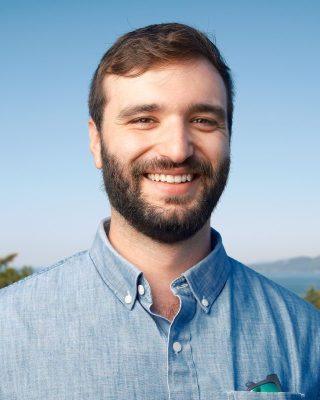Philip Solimine
Research Area
Education
Florida State University, Doctor of Philosophy in Economics, 2017-2022
Florida State University, Master of Science in Scientific Computing, 2019-2022
Florida State University, Master of Science in Economics, 2017-2019
Florida State University, Bachelor of Arts in Mathematics, 2012-2016
Florida State University, Bachelor of Science in Economics, 2012-2016
About
Research interests: Industrial Organization, Market Design, Behavioural Economics, Computational Economics, Environmental Economics, and Applied Econometrics and Theory
My research lies at the intersection of industrial organization and market design with computational and behavioral economics. I am particularly interested in applications involving energy markets, climate, and the digital economy. My current research is mostly focused on improving outcomes through strategic targeting with institutional constraints. In my ongoing work I apply this perspective to study market design and regulation policy in energy markets coupled by natural resource transmission, as well as in digital market platforms with integrated social networks.
Research
Investment and misallocation in infrastructure networks: The case of U.S. natural gas pipelines (with Paul Schrimpf)
Abstract:This paper investigates regulatory distortion in the incentives to invest in transmission capacity in the United States natural gas pipeline network. Transmission rates for interstate gas pipelines are tightly controlled by federal regulators, who set them so that firms earn a fixed rate of return on capital under projected demand and cost conditions. This rate of return regulation removes the incentive of pipeline operators to exercise local market power by withholding capacity; however, it also distorts firms’ incentives to invest in expanding network capacity. Misallocated capital in a transmission network can lead to inefficiencies and congestion. To ensure that new capital will be desirable, the regulator subjects new capital investment to a stringent approval process. Leveraging a detailed dataset of pipeline regulatory filings, we estimate a dynamic model of investment incentives using a debiased nonparametric machine learning approach. We then construct and estimate a structural measure of the marginal social value of capital that is based on a dynamic model of optimal network investment by a social planner. This measure ties the social value of pipeline capacity to differences in prices across state borders that exceed the marginal cost of transmission, indicating excess demand. We find that in most areas, the incentives of firms to invest in the pipeline network under fixed rates of return exceed the social value of capital. This suggests that some costly approval process surrounding pipeline investment is indeed necessary to realign firms’ incentives to expand the network. While overall the implied investment costs have been close to optimal, at a disaggregated level we find evidence of systematic deviations from the optimal policy both spatially and temporally. We suggest that a welfare-improving reallocation of regulatory costs would be one that streamlines investment approval in the northeast but increases regulatory stringency in the southeast and parts of the west.
Coarse targeting in social networks (with Wei Li)
Abstract: A social planner seeks to reduce misinformation in social networks. Her approach involves first selecting an optimal “influence vector,” or platform which determines the intensity of influence exerted on each agent in the network. After this, she sends a broadcast message to all agents over time. We identify the characteristics of the optimal influence vector and demonstrate how it relates to both the network’s initial opinions and its structure. Additionally, we highlight the advantages of our fixed-point algorithm over traditional methods based on projected gradient descent. Finally, we apply this framework to tackle climate-related misinformation, using data from U.S. states.
Strategic formation of collaborative networks (with Luke Boosey)
Abstract: We examine behavior in an experimental collaboration game that incorporates endogenous network formation. The environment is modeled as a generalization of the voluntary contributions mechanism. By varying the information structure in a controlled laboratory experiment, we examine the underlying mechanisms of reciprocity that generate emergent patterns in linking and contribution decisions. Providing players more detailed information about the sharing behavior of others drastically increases efficiency, and positively affects a number of other key outcomes. To understand the driving causes of these changes in behavior we develop and estimate a structural model for actions and small network panels and identify how social preferences affect behavior. We find that the treatment reduces altruism but stimulates reciprocity, helping players coordinate to reach mutually beneficial outcomes. In a set of counterfactual simulations, we show that increasing trust in the community would encourage higher average contributions at the cost of mildly increased free-riding. Increasing overall reciprocity greatly increases collaborative behavior when there is limited information but can backfire in the treatment, suggesting that negative reciprocity and punishment can reduce efficiency. The largest returns would come from an intervention that drives players away from negative and toward positive reciprocity.
Works in Progress:
Barriers to entry and dynamic community structure in digital platforms (with Angelo Mele)
Viral demand and post-promotion behavior in platforms with network effects (with Matthew Gentry)
Direct reputation and timing of quality decisions in markets for experience goods (with Patrick Tydir and R. Mark Isaac)
Model sharing with incentive compatibility
Publications
Selected publications:
Solimine, Philip, and R. Mark Isaac. “Reputation and market structure in experimental platforms.” Journal of Economic Behavior & Organization 205 (2023): 528-559.
Solimine, Philip, and Anke Meyer-Baese. “Input design for the optimal control of networked moments.” Proceedings of the 2022 IEEE 61st Conference on Decision and Control (CDC). IEEE, 2022.
For a full list of publications, please see https://www.psolimine.net/research
Teaching
- Instructor: UBC ECON 323, Quantitative Econ. Modelling and Data Science (8 sections)
- Co-instructor: UBC ECON 526 (MA), Quantitative Economics (1 section)
- Co-instructor: UBC ECON 622 (PhD), Computational Economics (1 section)
- Instructor: FSU ECO4400, Games and Decisions (1 section virtual, 1 section in person)
- Instructor: FSU ECO2023, Principles of Microeconomics (1 section)
- Invited lecture: FSU ECO5434 (MA), Analysis of Economic Data (1 section)
